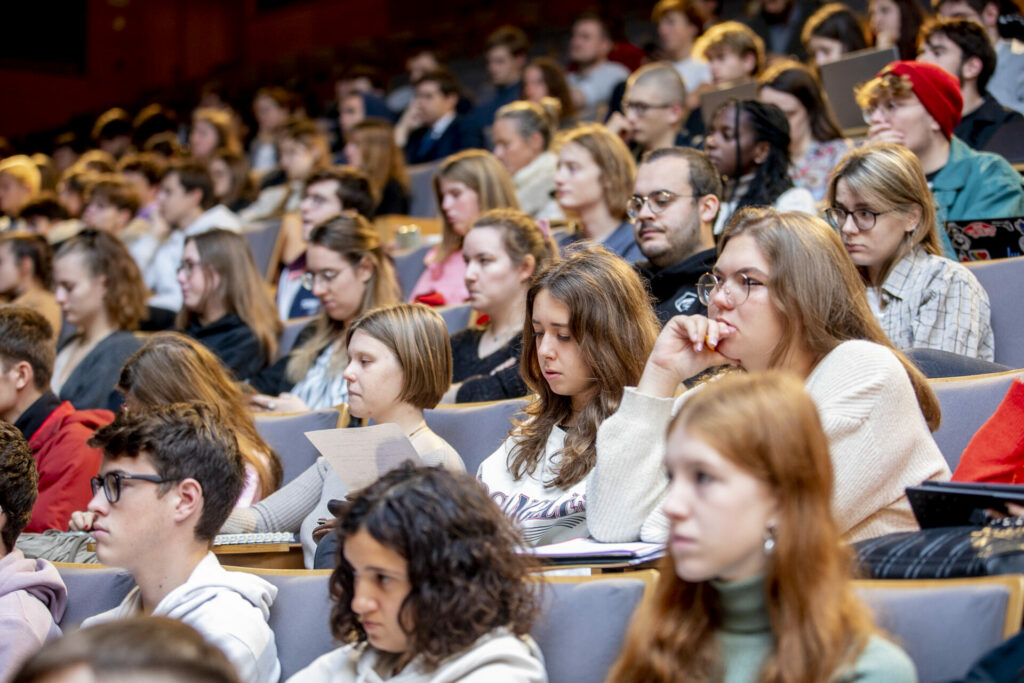The Flemish Community and its universities are facing a difficult balancing act between preserving the Dutch language in education and responding to the demand for more internationally-oriented programmes.
Higher education institutions in Flanders can offer a limited number of Master's programmes in another language, but a Dutch-language alternative has to exist alongside it – a rule that can only be circumvented with a well-reasoned application.
The Flemish Government clashed with universities in Flanders and Brussels for the second year in a row by rejecting a package of such requests for English-language Master's programmes in engineering. The Flemish community's Education Minister Ben Weyts (N-VA) said this risked all Dutch-language options disappearing.
However, both parties meeting halfway could prove vital for the success of those studying in Belgium, especially when it comes to finding a job after graduation.
Rising demand
Across universities, demand for English-language Master's programmes in engineering has been rising, Jan Danckaert, Chancellor of the VUB in Brussels and Chair of the Flemish Interuniversity Council (VLIR), explained.
"This is definitely linked to the job market and the nature of engineering education and the profession," he told The Brussels Times. Much of the sector's technical and scientific content and professional literature is in English, meaning that students have to master the language to be able to effectively carry out their work later on.
But English-language programmes are now more in demand among all students, including Belgians who speak Dutch, and in all programmes. "They like to be embedded in an international educational environment while studying their Master's degree," Danckaert explained.

Ceremony for graduating students of the VUB and ULB universities at the Grand Place in Brussels. Credit: Belga / Benoit Doppagne
For many students, this is already the case at the start of their academic careers. This phenomenon is mirrored in the enrolment in the VUB's English-language Bachelor's programmes, both in social sciences and business economics, which attract students from Belgian and international backgrounds.
"For them, this international educational context has become a condition they take into account when choosing their degree, because they realise that their professional lives will continue in this way," he said. "University should prepare them to function in such a context and English certainly occupies a very important position in this."
He noted that offering courses in English also allows for cooperation between French- and Dutch-speaking universities. The VUB, for example, offers five engineering Master's courses together with its francophone counterpart ULB. "These joint programmes offer a broader range of expertise."
Meeting halfway
With their applications, the universities also wanted to highlight that some Dutch-language programmes are at risk of becoming 'ghost programmes'.
"These engineering programmes are very research-intensive. Requiring our professors to prepare them in Dutch in addition to English requires a great deal of effort, and often these programmes have very few to no students."
He added that the universities were therefore disappointed that their applications for the English engineering programmes were rejected. However, he stressed that the minister has since offered to relax the format of the Dutch-language equivalents to international programmes.
The compromise standardises the requirements for Dutch-language alternatives, stipulating that only 50% of the course units have to be taught in Dutch.
Danckaert stressed that the universities understand the government's concern for the position of the Dutch language in education. "We are not denying that either. We are mainly pushing to ensure that not all institutions are required to have this equivalent."
Finding a way forward
The VUB Chancellor noted that there was room to negotiate a little further. For example, the restrictions on Bachelor's programmes are still much more strict: only 9% of programmes can also be offered entirely in English.
"Universities in Brussels particularly feel that further relaxation is needed, partly to give the city's growing community of expats and international students the opportunity to access higher education here."
Related News
- Flanders rejects English-language university programmes again
- Twice as many children failing primary school in Flanders compared to six years ago
Companies have already warned that they will likely have to recruit around one third of the highly-educated profiles they need from abroad. "We could already be training these people here to ensure that they remain in Belgium and enter our labour market. This is also very important for our knowledge society."
For this reason, the VUB recently signed a "charter of multilingualism" together with the Erasmus University College. It highlights that multilingualism presents challenges, but above all, opens doors. "By acknowledging and pedagogically embedding multilingualism, we are also offering these young people more opportunities," Danckaert concluded.

